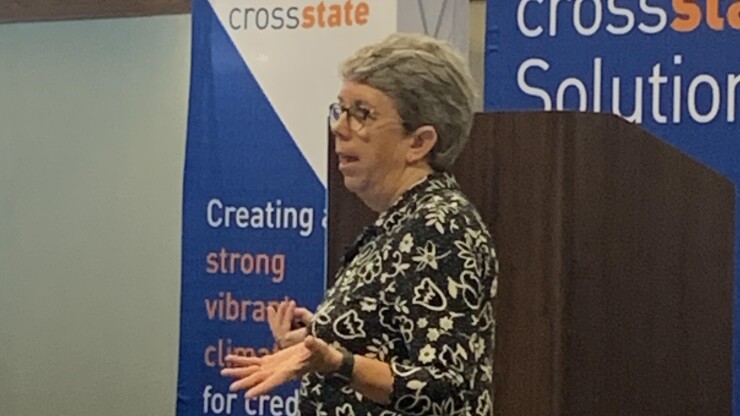
With cases of dementia expected to more than double in the U.S. by 2050, some credit unions and banks are taking steps to better recognize symptoms in their customers and members.
More than 6 million Americans are living with Alzheimer's, which is the most common cause of dementia. Total Alzheimer's cases are expected to reach nearly 13 million in the next 27 years, according to the Alzheimer's Association.
The situation is especially critical in Arizona. Dementia cases in the state are expected to
So Landings Credit Union in Tempe recently decided to be proactive and get its staff trained.
"We brought nearly all our staff together and learned about the early signs and symptoms of dementia, which range from memory loss disrupting daily life to challenges with vision and speech," said Landings President and CEO Brian Lee in an interview. "Each symptom included examples and led to staff sharing personal experiences about their family or our members."
The training was conducted by Oakwood Creative Care, a nonprofit that supports the aging community, and resulted in Landings being designated a "dementia friendly" institution.
The average age of Landings' membership is rising, according to Lee. The credit union has worked on developing programs to
People with dementia can experience greater difficulties managing their finances, forget to pay their bills and suffer

"Regarding potential financial abuse, we are looking for instances where third parties may be misusing our members' funds. We look for unusual account withdrawals, drastic shifts in transfers or wires and other signs of intimidation or reluctance to speak in front of a care provider," Lee said.
Credit unions and banks are limited in what they can do in those situations, but Lee said when something clearly appears to be fraudulent or unusual, the credit union tries to slow things down.
"Staff will start by asking more questions about the situation. Sometimes just asking those questions and walking through the reality of what is going on will trigger the member to realize it is a scam. Other times we have contacted a joint member or power of attorney contact on the account, and that has stopped it," Lee said.
Mike Lynch, a spokesman for the Alzheimer's Association, said the group is not directly involved in dementia certification such as the one Landings received, but he added that such accreditation lets customers know the staff have received dementia education and is better prepared to interact with and support those living with dementia.
"Problems with personal finances are a common early warning sign of Alzheimer's and other dementia," Lynch said. "Ensuring financial professionals have a basic understanding of dementia, how to identify it and how to adapt communication to help the affected person is extremely valuable."
An estimated 6.7 million Americans aged 65 and older are living with Alzheimer's dementia. About one in nine people aged 65 and older have the disease and that ratio increases to one in three for ages 85 and above, the Alzheimer's Association said.
Earlier this year,
The $387 million-asset Land of Lincoln said in a
"We are working hard to equip frontline staff with the skill set and intuition to safely and respectfully assist them with money management and to help them avoid financial abuse or harm," said Jeri Conaway, the credit union's senior vice president of member services.

After attending training with the Dementia Friendly Middleton Coalition, the $2 billion-asset IncredibleBank in Wausau, Wisconsin, also received dementia-friendly status.
"My father struggled with his memory loss in public settings," said IncredibleBank executive administrative assistant, Rhonda Lewis, in a
IncredibleBank said it will maintain its dementia-friendly status with quarterly training sessions for new employees as well as refresher training for current staff.
Lee from the $248 million-asset Landings said better dealing with members suffering from dementia includes speaking clearly and being patient, and giving the member time to respond.
"We have had several instances in the past where we needed to give special assistance to a member with dementia. Unfortunately, it seems to be more common lately," Lee said.





